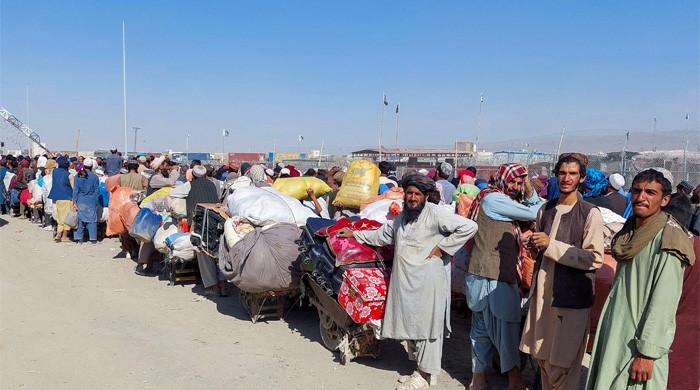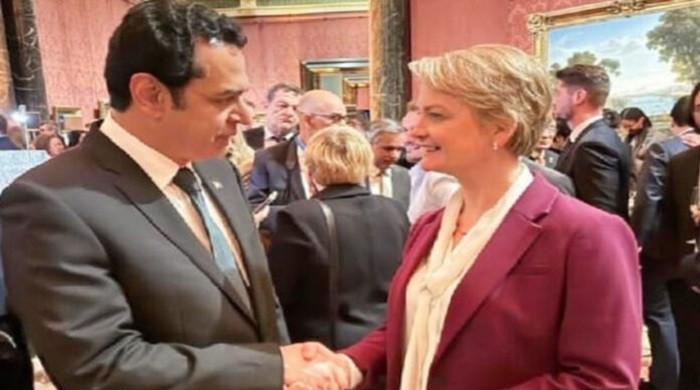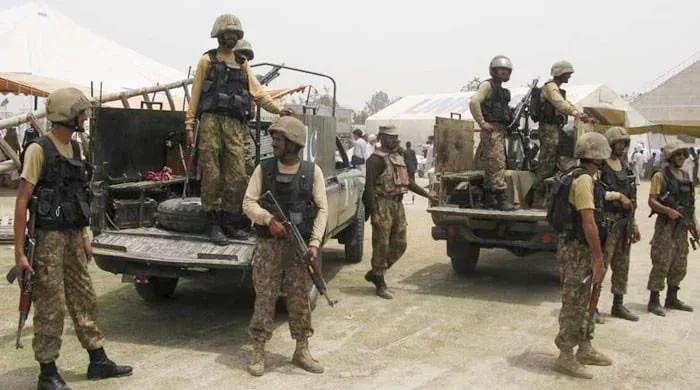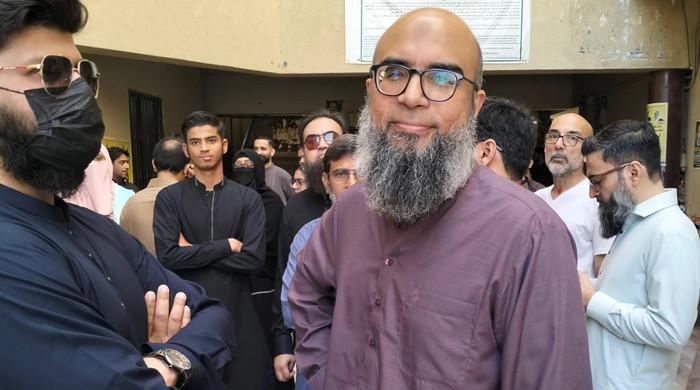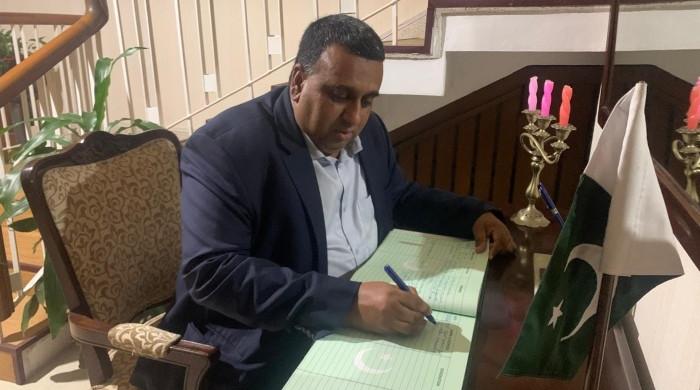Pakistan stands at 'defining moment' of economic transformation, says PM at WGS
Economic stability is a means and not an end, says Premier Shehbaz
February 11, 2025

- Premier says placing economy on firm footing a central plank.
- Energy security, sustainability a national priority: PM.
- Prime minister meets UAE president on sidelines of WGS.
Prime Minister Shehbaz Sharif on Tuesday highlighted the incumbent government's achievements to stabilise the country's economy, saying that Pakistan stands at a "defining moment of economic transformation".
"Despite huge challenges, placing our economy on a firm footing has been a central plank of what we have achieved in Pakistan in the last year," the premier said while addressing the World Governments Summit 2025 in Dubai.
He pointed out that headline inflation has dropped to 2.4% in January this year — the lowest in nine years while the interest rate was capped at 12%, a major stimulus for private sector credit.
"Economic stability is a means and not the end...Our five Es under National Economic Transformation Plan, Uraan Pakistan, is driving this change focusing on exports, e-Pakistan, environment and climate change, energy and infrastructure and equity and empowerment," he said.
The premier noted that energy security and sustainability were not just an economic necessity but also a national priority. "Pakistan is committed to achieving a 60% clean energy mix by 2030 and transitioning 30% of all vehicles to electric mobility," he said.
"We are rapidly scaling up solar, wind, hydropower and nuclear energy. Our southern regions hold 50,000 MW of untapped wind energy potential. Our northern hydropower projects will add 13,000 MW of clean energy capacity.
"Solar energy adoption is being accelerated through policy reforms, tax exemptions, investment, incentives, net-metering and waiving custom duties on solar panels and other equipment," he added.
The prime minister further stated that Pakistan offers one of the most dynamic investment landscapes in Asia, with 70% of its young and tech-savvy population under the age of 30. "Pakistan's strategic location bridges South and Central Asia, and with an emerging middle class, our economy presents promising opportunities".
"We are simplifying business regulations and launching legal protections and streamlining investment approvals to make Pakistan a leading destination for global capital," he added.
In order to drive investment in key sectors, PM Shehbaz said that the Special Investment Facilitation Council (SIFC) has been established to focus on renewable energy, resilient infrastructure technology and digital economy, minerals and industrial development and agricultural and food security.
"Pakistan is embracing eco-friendly agricultural innovations under the umbrella of the adaptation policy of 2023 to enhance productivity and ensure food security and strengthen our rural economy," he added.
He also said that the government was working to enhance water efficiency through drip irrigation, precision farming, drought-resistance crops and water jet management.
"We are also incentivising agri-tech innovations by deploying solar-powered irrigation systems using renewable energy sources for farm operations and climate-smart census to monitor soil and weather conditions to modernise our farming system while reducing our environmental footprint," he added.
While the government pursues growth targets, he said, the underlying priorities remain centred around uplifting communities, creating equitable opportunities and building a prosperous future for the people.
"The global shift to a green economy requires a shared responsibility...while we are fully committed to mobilising domestic resources and policy reforms, international partnerships and financial support remain critical to achieving this goal," the premier noted.
"Pakistan energy transition alone demands $100 billion in investment," he said, calling upon the governments to strengthen climate financing and technology sharing and private investors to explore Pakistan's clean energy and infrastructure opportunities.
The prime minister emphasised that Pakistan stands at the threshold of a new era one that prioritises infrastructural advancements, economic diversification and human development.
"The future is not something we passively inherit, rather it is something we actively shape...let this summit herald the dawn of a global peace and sustainable prosperous future for all of us," he added.
PM Shehbaz meets UAE president
The premier met the UAE President and ruler of Abu Dhabi Sheikh Mohamed bin Zayed Al Nahyan on the sidelines of the summit being held under the theme ‘Shaping Future Governments’ in Dubai.
During the meeting, both sides discussed bilateral trade and economic cooperation besides the recent developments in the Middle East. Chief of the Army Staff General Syed Asim Munir was also present in the meeting.

Both leaders discussed ways to deepen cooperation between Pakistan and the UAE and explored opportunities to enhance mutual interests.
The talks focused on economic, trade, and development fields, alongside other areas that align with both nations’ visions for sustainable economic growth and prosperity.
The meeting also provided an opportunity to address the significance of the World Governments Summit in identifying global trends in governance and presenting actionable strategies to enhance government preparedness in navigating global transformations.
The discussions underscored the importance of leveraging these shifts to accelerate development and build a better future for all




